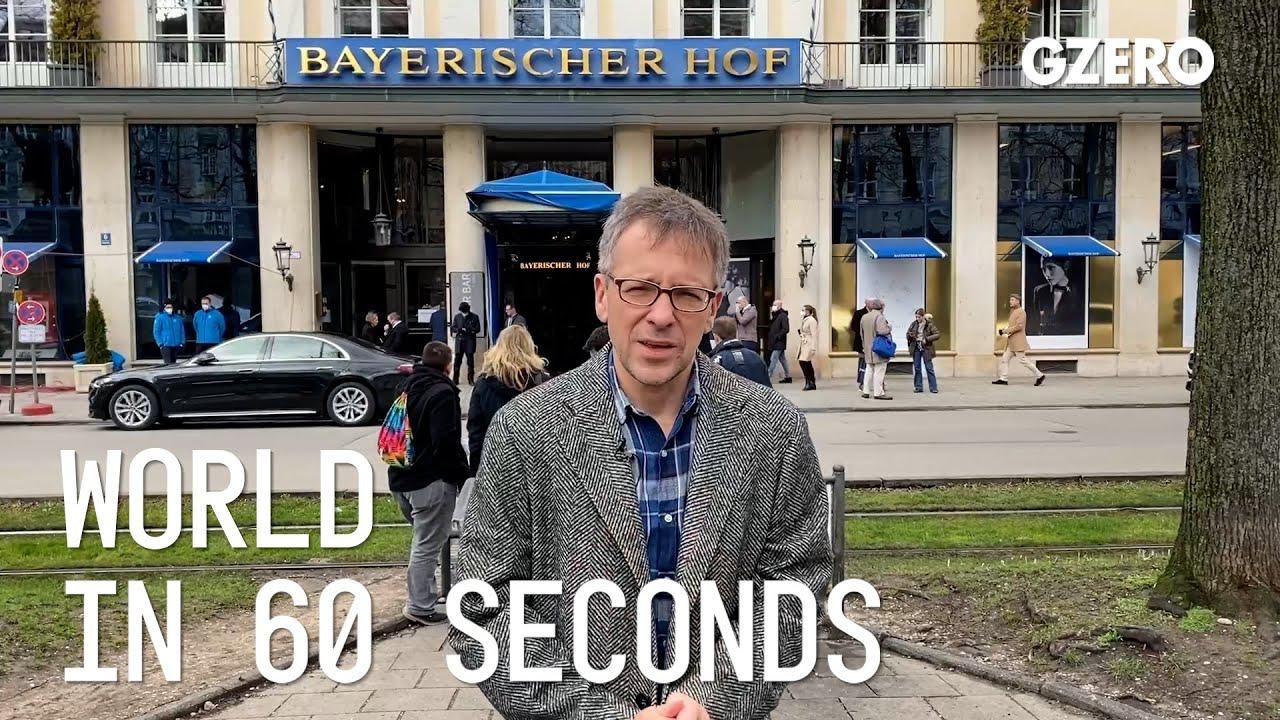
Ian Bremmer shares his insights on global politics this week on the major escalation this week over the big issue everyone is worried about: Russia and Ukraine.
Hi everybody. Ian Bremmer here. And I'm on the ground in Munich where the sun is popping through. I wish I could say that that had some symbolism. It does not appear this way. It is the first major security confab to come together post-pandemic or in pandemic. And there's still all sorts of vigorous rules and regulations on how few people can come and everyone wearing masks and social distancing. But the major leaders are all arriving, and they're arriving at a time of extreme geopolitical concern.
Fact is that there's been major escalation this week over the big issue everyone is worried about, Russia and Ukraine. Russia's claiming they're taking troops off of the Ukrainian border, actually adding an additional 7,000. Russian president telling German Chancellor Scholz who's coming here shortly that acts of genocide are being committed against Russian passport holders on the ground in the occupied territory and the Russian Duma flip-flopping on what looked like it was going to be opposition and recognizing the independence of the occupied territory now, suggesting that they should, passing that piece of legislation gets kicked to Putin. He decides what he's going to do.
And then just hours ago, a kindergarten with lots of kids in attendance shelled by Russian forces in between the occupied territory and the Ukrainian territory. And only a couple of injuries and no kids were harmed, but clearly this is the kind of act that if kids had gotten killed, Ukrainian forces would've been hard pressed not to retaliate. And that is exactly what the Russian government is looking for, a provocation that would then justify the Russians to rip up the Minsk Agreement, declare the independence of this breakaway republic, which would then request Russian military support and defense. And of course the Russians would provide it. And at that point you've got major sanctions. That's tripwire.
So we are very close to an extremely dangerous situation, really unprecedented since the Soviet Union collapsed in 1991. And yet here we are with the trans-Atlantic relationship stronger, more purposeful, more motivated than at any point since that time. This was the same conference that two years ago had a theme of "Westlessness", the idea that the world was moving and the West was faced with a lack of identity on we, obsolescence. Not the case at all right now. NATO has a mission. It's very reinvigorated and it's because everyone is deeply concerned that at this time next week there could be military confrontation directly with Russia.
I'm certainly going to be following it very closely. And you'll be hearing a lot from us here at the Munich Security Conference. Hope everyone's doing well. Let's wish for the best.
- Ukrainian diplomat: Invading would ruin Putin - GZERO Media ›
- Will Putin invade Ukraine? - GZERO Media ›
- Russia's moves toward Ukraine - GZERO Media ›
- Europeans suggest reviving Minsk Agreement to resolve Ukraine ... ›
- Petraeus: Taking Ukraine is one thing, holding onto it is another - GZERO Media ›
- Minsk agreement a path to resolving Ukraine crisis - GZERO Media ›
- European & US leaders resolute as threat of Ukraine war grows - GZERO Media ›